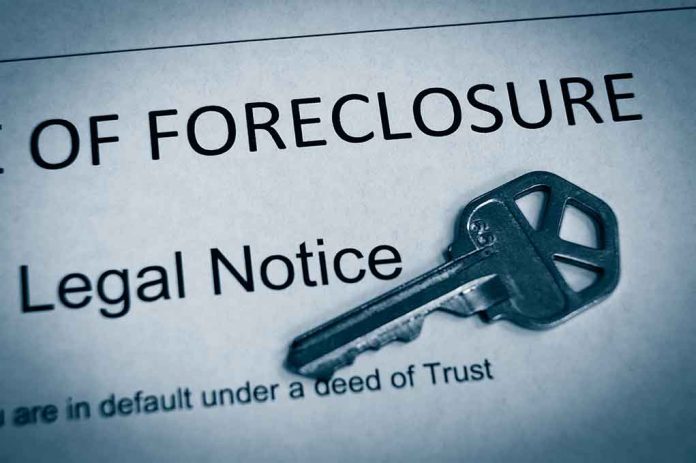
(NationRise.com) – Times are tough. Many families struggle with issues like job loss, rising costs, and taking care of older family members. While foreclosures rose at the end of 2022, they still remain somewhat low — for the time being. However, each foreclosure represents a household that lost their home after facing eviction. For many, experiencing foreclosure also affects their credit — they will have trouble buying another home in the future and can even have difficulty finding a place to rent.
If you’re living the paycheck to paycheck life or if your family has experienced hardship lately, you know how stressful it can be to miss or nearly miss a mortgage payment. Sometimes circumstances mean that a skipped mortgage payment is inevitable. Health issues, unemployment, and other financial difficulties can make your typical premium suddenly seem impossible to make.
Given this information, how can you avoid foreclosure?
Enter into Negotiations With Your Lender
Foreclosing upon a home and evicting a tenant isn’t the most desirable outcome for a lender. It’s expensive, and they’re usually financial institutions, not real estate companies aspiring to hold onto properties. They’d also rather get their money back, and properties sold after they’re foreclosed get a lot less money than the loan amount.
When you experience a change in financial circumstances, you should contact your lender as soon as possible, even if you’re confident that the change is temporary (in the case of most job losses, for example).
When things happen, most lenders will be willing to work with you. Many financial institutions offer a mortgage assistance program or a loan modification procedure. The latter will pile on debt in the long term, but can help you avoid trouble in the short term. Your lender may also allow you to refinance, get forbearance, or work out a payment plan for a skipped payment.
You could also consider a short-sell on your home. You’ll still lose your home, but the impact on your credit will be less and you’ll have a better chance of finding a new home immediately.
Ignoring the problem when there’s a potential for foreclosure is the worst thing you can possible do. It’s much harder to negotiate with your lender after you’ve missed multiple payments.
Consider the Making Home Affordable Program
This program is part of the United States Department of the Treasury and the United States Department of Housing and Urban Development (HUD). Making Home Affordable provides you with housing counselors who can help you avoid foreclosure and advise you on the tough decisions you’ll need to make to keep your home.
The housing counselors can also inform you of your eligibility status for the Home Affordable Modification Program, specifically designed to assist people with longer term income lost or major increases in expenses (like when a family member becomes disabled). This program provides coordination with your existing lender.
Prioritize and Budget
What if you can’t make your mortgage payment after all? It’s time to prioritize. Do you want to keep your home, or would you rather cut it loose? If you’re ready to let go of it, consider a short sale.
Otherwise, it’s time for a strict budget. You may have to do things like figure out how to be a one car or no car household, cut luxuries, and cut wants for some time. The actions you take to save cash should be responsible.
A less desirable way to avoid foreclosure is to consider Chapter 13 bankruptcy. This can give you time to get current on your payments via a payment plan spread out over the length of your current loan, but it only works for those who have enough income to remain current. This may be a good option for those with a temporary income loss — for example, someone who was without work for several months, but then found a better job.
Avoiding foreclosure is important, and you have to face the problem head on. Start with a conversation with your lender today.
Copyright 2023, NationRise.com



